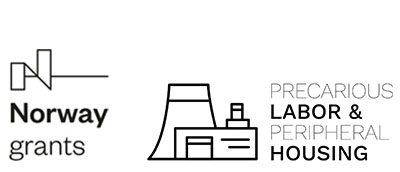Project
This project addresses the dynamics of social marginalization in the nexus of industrial investment and public policy. We set out to answer four related questions: How did different industrialization, deindustrialization and reindustrialization cycles shape marginalization in the semi-peripheral economies of Central and Eastern Europe? How did the Roma experience these cycles differently from the workers with different ethnic backgrounds in labor, housing and migration? How did the macro-level policy regimes (socialist, post-socialist, neo-developmental, neoliberal) mediate the effects of these developmental cycles on marginalization? How is the latter impacted by the meso-level (municipal) policy orders (for example via the creation around the state companies of the ethnically mixed collective housing before 1990, and via the formation of segregated real estate markets afterwards)? Conjointly answering these questions will provide the groundwork to create a collaborative network of ethnic Roma, public administrators, employers, trade unionists, academics and activists keen to contribute to the betterment of the most hardly tested ethnic minority in Romania.
The main theoretical objective of our project is to provide an intersectional understanding of the above defined questions by going beyond the existing conceptual frames favoring either cultural specificity, found in the mainstream Romani Studies, or class-based approaches to industrial relations and development. Our approach emerges at the crossroads of political economy, sociology, history and anthropology in order to advance a novel theorization of how CEE’s shifting modes of industrial insertion into the global economy have generated different patterns of social marginality, and how are the marginalized and racialized people dealing with them. Methodologically, the project’s ambition is to surf the cutting edge in these related fields by combining historical, statistical and ethnographic analysis, using diverse research methods, such as oral history, in-depth interviews, participant observation, survey, policy analysis, as well as analysing secondary statistical data.
Our expected results will provide a complex assessment of the economic transformations of the last decades, is going to identify the points where interventions could be made to redress capital/labor relations, to attenuate the racialization of Roma and non-Roma workers, to support forms of solidarity between immigrant workers and citizens and, not least, to encourage demands for adequate and affordable housing. Each of the six work packages will provide their own concrete results materialized in journal and volume articles, while advancing theoretical approaches based on empirical research. Joined, they provide a systematic framework for understanding the nexus between industrial investment cycles and social marginalization, but as well as contributing to the definition of a public agenda for transcending the condition of dispossession in labor, housing and migration.






